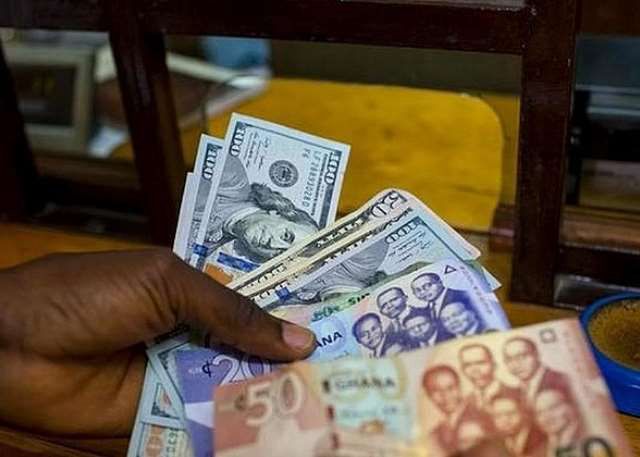The Ghanaian cedi’s performance against major international currencies presents a nuanced picture, marked by slight depreciation against the US dollar and varying exchange rates across different platforms and transaction types. As of June 13, 2025, the average exchange rate for the US dollar stood at GHS10.24 for buying and GHS11.04 for selling, according to Cedirates.com, a reliable source for currency information in Ghana. This indicates a slight weakening of the cedi against the dollar, with a noticeable spread between buying and selling rates, reflecting the margin applied by currency exchangers. The forex bureau rates further amplify this spread, with a buying rate of GHS11.50 and a selling rate of GHS11.95, suggesting a higher cost for individuals seeking to acquire dollars compared to those exchanging dollars for cedis.
A comparison of the interbank market rates with those offered at forex bureaus reveals a notable difference in the dollar exchange rate. While the interbank market offers a tighter spread of GHS10.24 for buying and GHS10.26 for selling, forex bureaus present a wider gap. This disparity likely arises from the distinct functions of these markets. The interbank market facilitates large-volume transactions between financial institutions, typically operating with lower margins. Forex bureaus, on the other hand, cater to individual customers and smaller transactions, incorporating higher margins to cover operational costs and generate profit. This duality creates a two-tiered system where access to more favorable exchange rates depends on the volume and nature of the transaction.
Exchange rates for other major currencies, such as the British pound and the Euro, exhibit similar dynamics. The average exchange rate for the British pound stands at GHS13.75 for buying and GHS14.69 for selling, while the Euro trades at GHS11.73 for buying and GHS12.61 for selling. These rates, like those for the US dollar, reflect a spread between buying and selling prices, highlighting the cost associated with currency conversion. The Bank of Ghana’s interbank rates for the pound and the euro, at GHS13.93 and GHS11.87 respectively, are again more favorable than those offered at forex bureaus, reinforcing the distinction between wholesale and retail currency exchange.
Money transfer services, increasingly crucial in the globalized economy, offer yet another layer of complexity to the currency exchange landscape. Platforms like LemFi and Hurupay provide competitive rates for dollar transfers from the US or the UK to Ghana, with LemFi offering GHS10.41 per dollar and Hurupay offering GHS10.28 per dollar. These rates are generally more favorable than those found at forex bureaus, highlighting the potential cost savings for individuals utilizing these specialized transfer services. For British pound transfers, LemFi offers a rate of GHS13.85, while Afriex provides a slightly higher rate of GHS15.20. Similarly, Afriex offers a euro exchange rate of GHS12.95, compared to LemFi’s GHS11.70. These varying rates underscore the importance of comparing services to secure the most advantageous exchange rate for international money transfers.
Digital subscriptions, an increasingly common expense in the modern era, introduce a distinct exchange rate scenario. Payments for services like Netflix, Spotify, or Apple Music using Visa and Mastercard are processed at a rate of GHS11.02 per dollar. This rate falls within the broader range observed across different exchange platforms, suggesting that while it may not be the most favorable rate available, it remains competitive with prevalent market rates. The standardized rate for these transactions provides a degree of predictability for consumers, simplifying budgeting for these recurring expenses.
In summary, the Ghanaian cedi’s exchange rate dynamics present a complex interplay of market forces, transaction volumes, and service providers. From the interbank market to forex bureaus, money transfer services, and digital subscription platforms, the cost of acquiring foreign currency varies, highlighting the importance of informed decision-making. Individuals and businesses engaging in international transactions must navigate this landscape carefully, comparing rates and services to optimize their currency exchange strategies. The slight depreciation of the cedi against the US dollar underscores the ongoing fluctuations in the foreign exchange market, requiring continuous monitoring and adaptation to prevailing economic conditions.


